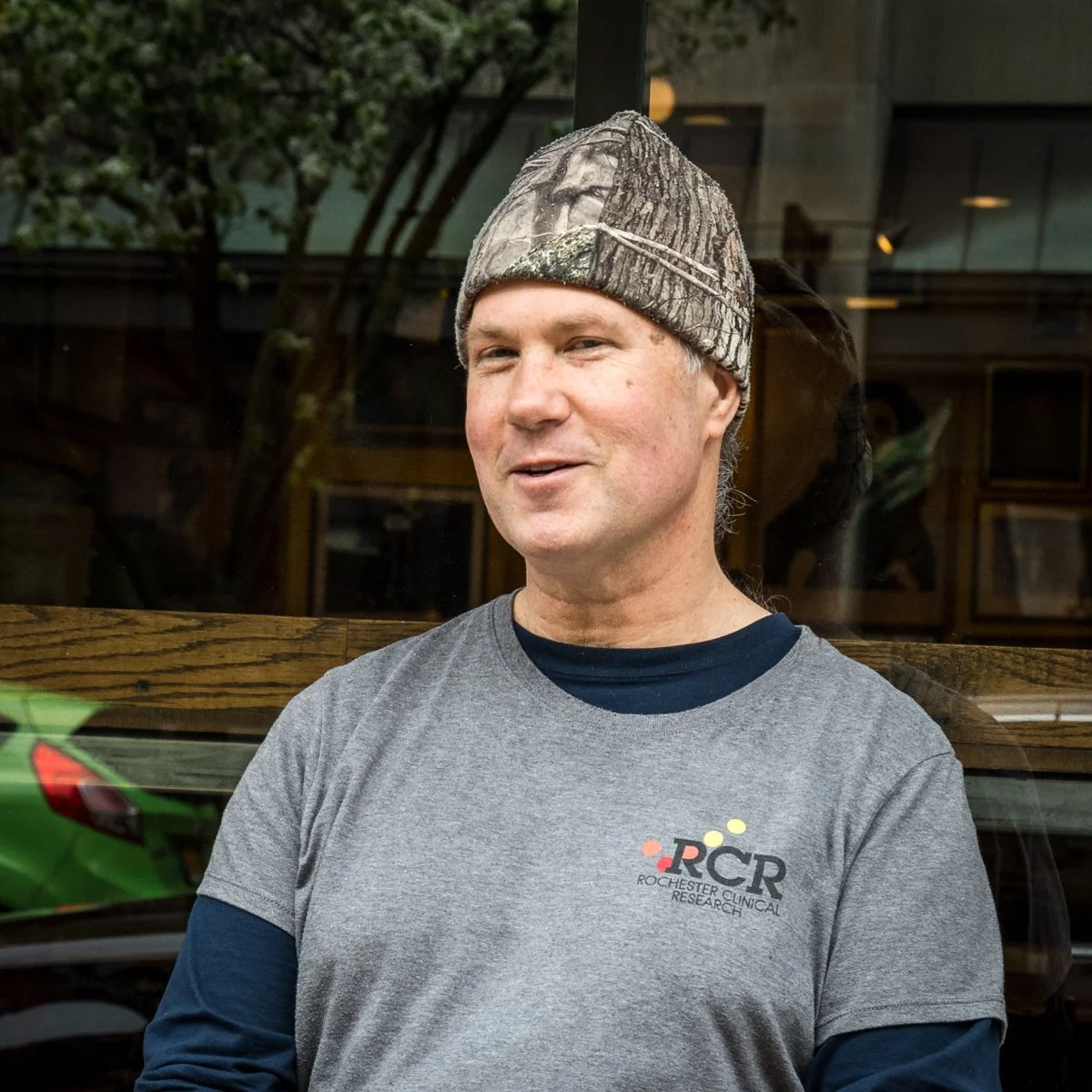People of Rochester - Charlie
I met Charlie on May 27th, in front of Java's Cafe on Gibbs Street. Charlie had forgotten his mask and was waiting outside the coffee shop, while a couple of friends picked up coffee for him. He graciously agreed to talk to me about his experience of the coronavirus pandemic.
Charlie's been working during the lockdown. He has a part-time job in a liquor store, an essential business. Customers have told him they're happy the store is open, and Charlie understands how having an occasional drink might make it easier to get through these times. He thinks business has increased and people are drinking a bit more than usual, especially because bars are closed.
When I asked him if he's found anything beneficial or positive about the quarantine, Charlie hesitated, then confessed he finds the news more interesting when it's bad. He apologized for his affinity for bad news, especially when people are suffering.
But Charlie doesn’t revel in other people's hardship. He has a call list of people he checks in on, to see how they're doing to make sure they're alright. He asks if he can do anything for them, such as pick up groceries.
He says he usually shops at Wegmans or Tops, and earlier, in March, he was surprised at the scarcity of certain staples in grocery stores, such as toilet paper. Regardless, another benefit of the quarantine for Charlie is that he's eating less processed and junk food, and preparing more meals from scratch.
Charlie believes Americans should train themselves to be self-reliant and be prepared to shelter in place for up to a couple of weeks, if necessary. "The average American should be able to shelter in place without panicking or freezing or starving to death if the heat and water and electricity all go off for a week, so long as it's not the dead of winter," he said. People shouldn't think that someone is coming to rescue them every time there's a problem.
On a typical day, Charlie gets up early, has a cup or two of coffee, puts on YouTube, lifts weights, and maybe goes for a walk. He belongs to a walking club, but most others in the club aren't on his schedule. Sometimes he walks with friends, maintaining social distance.
Charlie misses being able to go to public places like restaurants, bars, coffee shops, and church. He said that Easter and Lent were very different experiences this year.
When I asked if he thought life would be returning to normal after the pandemic is over, Charlie said, "normal" isn't coming back. He said, "My heart goes out to anyone who's trying to run a bar or coffee shop, or anybody who wanted to play high school basketball, or wrestling. It's sad."
When the pandemic is over, Charlie believes it will have changed American society "a little bit." He thinks it may encourage some people to become more self-reliant, which he feels is a good thing.

